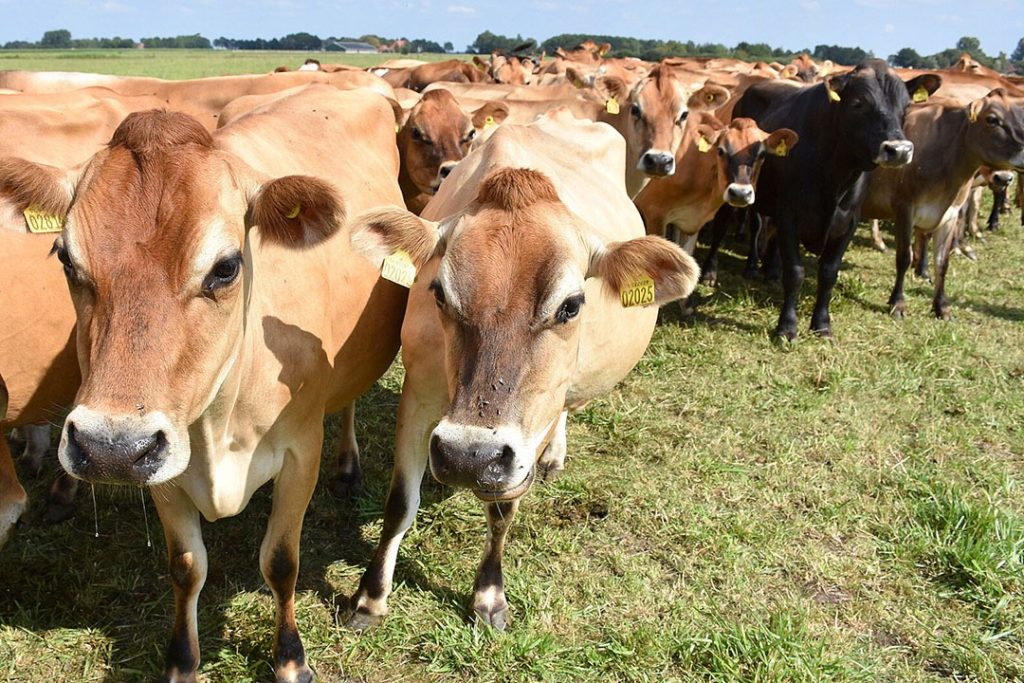
By Erastus Ngaruka
Livestock production in Namibia primarily includes cattle, sheep and goats. Essentially, the management practices implemented to ensure optimal performance and productivity focus on their health, nutrition and welfare among other aspects.
Livestock health is one of the aspects of economic importance to Namibian farmers as it plays a significant role in the trading of livestock and by-products.
Livestock production in the country, especially the beef production industry, holds a significant share in the Namibian export basket, ranging from live animals, such as weaners to South Africa, or beef cuts to the lucrative international markets in Europe, for example.
Having enjoyed the worthwhile European markets for years, Namibian beef has also gained access to the United States of America (USA) and the Chinese markets. Moreover, through consistent efforts focused on market expansion and diversification, Namibia was recently accorded another window of opportunity to export goat and sheep meat to China.
This is favorable news for the goat and sheep farmers in the country. This means small stock farmers need to enhance their production capacity to penetrate this market and future markets while sustaining existing markets.
Overall, market exploration efforts are underpinned by the animal health and free-range statuses that the Namibian beef industry has promoted and maintained over the years to build and retain consumer confidence.
In addition, the country complies with international trade protocols and the animal health protocols of the World Organization for Animal Health (WOAH). This compliance is strengthened by the country’s animal health and trade protocols facilitated by regulatory or facilitating authorities such as the Directorate of Veterinary Services (DVS) of the Ministry of Agriculture and the Livestock and Livestock Product Board (LLPB), embodying all meat industry stakeholders.
Furthermore, an essential part of the systems that promote and protect the meat industry includes the FANMeat scheme of LLPB, which has established an assurance of quality and safety of Namibian beef.
This assurance includes a system known as the Namibia Livestock Identification and Traceability System (NamLITS) that enables the tracing of meat or animals back to the farm of origin, among other uses.
To access and maintain Namibian meat markets, farmers need to play a significant role by implementing and adhering to all animal health and trade regulations or protocols. To this end, it is vital for every farmer to develop and use animal health and welfare programs or protocols to enhance productivity and participation in livestock markets.
There are certain aspects that farmers need to consider when developing their programs. Firstly, the prevalence of diseases in their farming environment and the country at large. This includes “Notifiable Diseasesâ€, which are diseases that must be controlled through annual vaccinations by law. These diseases include Anthrax, Brucellosis, and Foot and Mouth Disease (FMD) among others.
Moreover, these diseases have economic or trade implications, hence, export markets strictly require meat products to come from farming areas that are free of or cleared from such diseases. Farmers should also pay attention to other diseases of concern, including Lumpy Skin Disease (LSD), botulism, black quarter, pulpy kidney, and pasteurellosis, among others.
Another animal health practice that should be included in the program is the control of both internal (e.g., worms, flukes) and external (e.g., ticks, mites, fleas) parasites. This is critical as parasites can cause deadly illnesses in livestock.
Moreover, some parasites can negatively affect meat quality, resulting in significant economic losses. For example, “beef measles†in carcasses is caused by a tapeworm that lives in the human intestines and contaminates the environment through human feces. To prevent such contamination, it is therefore crucial to practice proper hygiene on farms through the construction of ablution facilities (toilets).
Lastly, agriculture in Namibia is dominated by livestock production and is regarded as a principal contributor to the GDP. To this end, protecting this sub-sector not only favors our markets but also the livelihoods of many Namibians, directly or indirectly.
This is a shared responsibility between all role players, including individual farmers, the government and its agencies/institutions, farmers’ unions, traditional authorities, and the population at large.
*Erastus Ngaruka is a Technical Advisor: Livestock & Rangeland Management at Agribank. The views and thoughts expressed in this article are purely of my own and do not represent those of my employer











